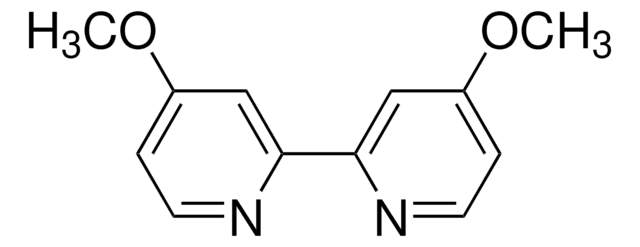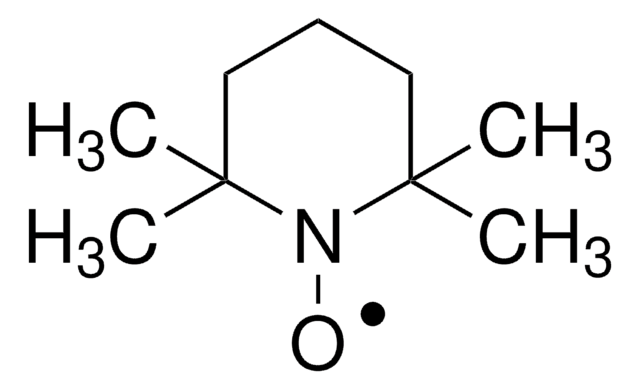763284
9-Azabicyclo[3.3.1]nonane N-oxyl
95%
Synonym(s):
9-Azabicyclo[3.3.1]nonane N-oxyl radical, ABNO
About This Item
Recommended Products
Assay
95%
form
solid
reaction suitability
reagent type: ligand
greener alternative product characteristics
Catalysis
Learn more about the Principles of Green Chemistry.
sustainability
Greener Alternative Product
mp
65-70 °C
greener alternative category
, Aligned
storage temp.
2-8°C
SMILES string
C[C@@]12CCC[C@@](C)(CCC1)N2[O]
InChI
1S/C10H18NO/c1-9-5-3-7-10(2,11(9)12)8-4-6-9/h3-8H2,1-2H3/t9-,10+
InChI key
GGWCZKZSILYISB-AOOOYVTPSA-N
Looking for similar products? Visit Product Comparison Guide
Related Categories
General description
Application
Copper(I)/ABNO-Catalyzed Aerobic Alcohol Oxidation: Alleviating Steric and Electronic Constraints of Cu/TEMPO Catalyst Systems
Signal Word
Danger
Hazard Statements
Precautionary Statements
Hazard Classifications
Acute Tox. 4 Oral - Eye Dam. 1
Storage Class Code
11 - Combustible Solids
WGK
WGK 3
Flash Point(F)
Not applicable
Flash Point(C)
Not applicable
Choose from one of the most recent versions:
Certificates of Analysis (COA)
Don't see the Right Version?
If you require a particular version, you can look up a specific certificate by the Lot or Batch number.
Already Own This Product?
Find documentation for the products that you have recently purchased in the Document Library.
Customers Also Viewed
Articles
TEMPO (2,2,6,6-Tetramethylpiperidinyloxy or 2,2,6,6-Tetramethylpiperidine 1-oxyl) and its derivatives are stable nitroxy radicals used as catalysts in organic oxidation reactions. TEMPO was discovered by Lebedev and Kazarnovskii in 1960. The stable free radical nature of TEMPO is due to the presence of bulky substituent groups, which hinder the reaction of the free radical with other molecules.
Our team of scientists has experience in all areas of research including Life Science, Material Science, Chemical Synthesis, Chromatography, Analytical and many others.
Contact Technical Service


